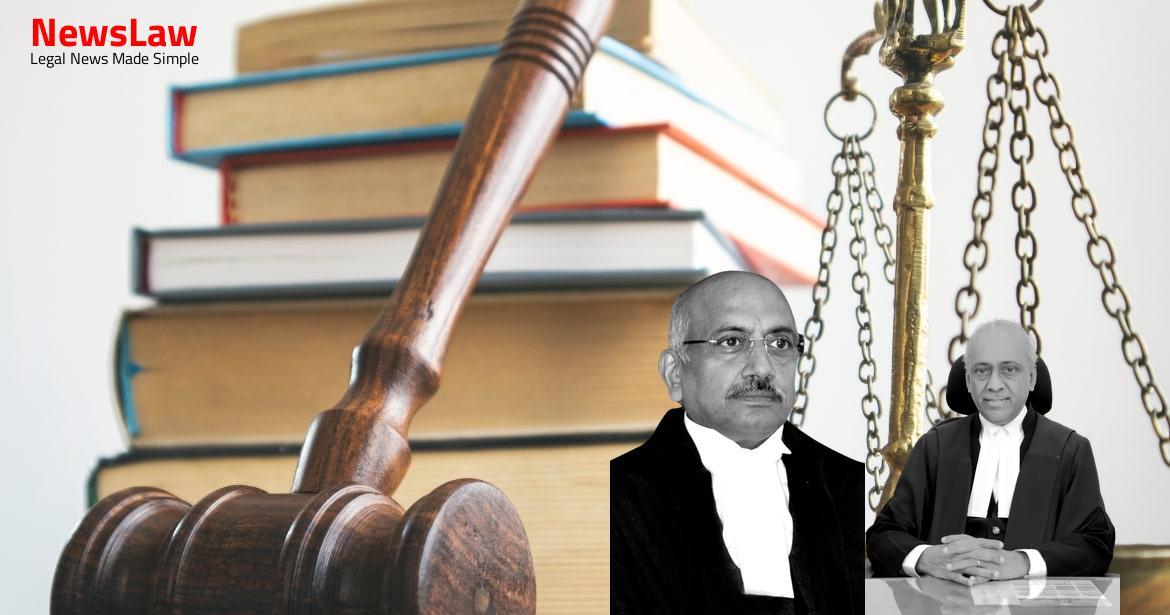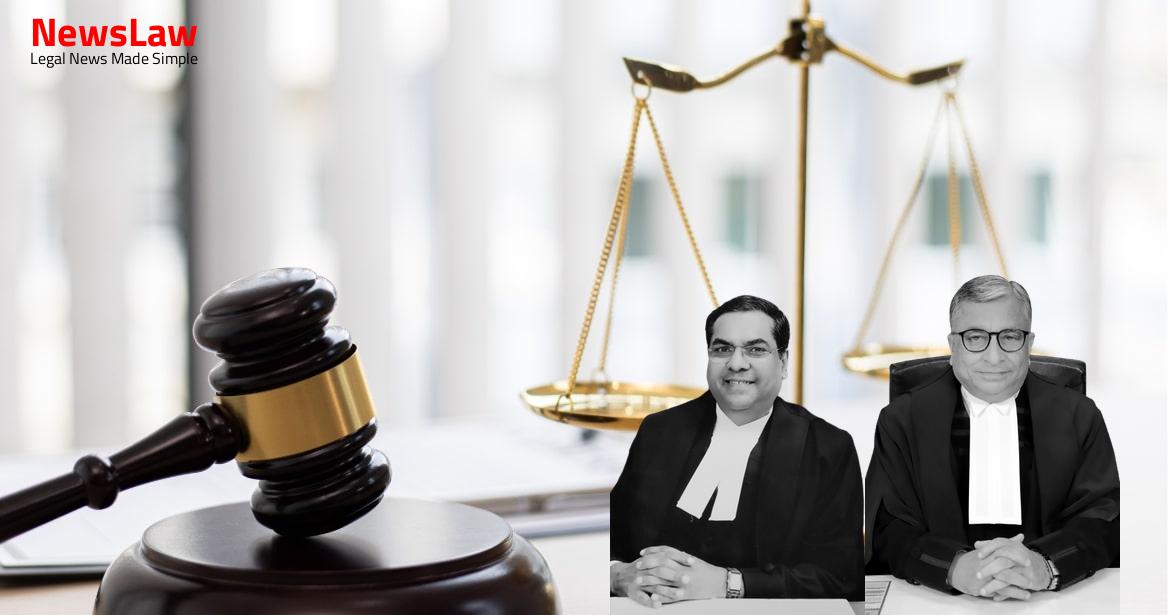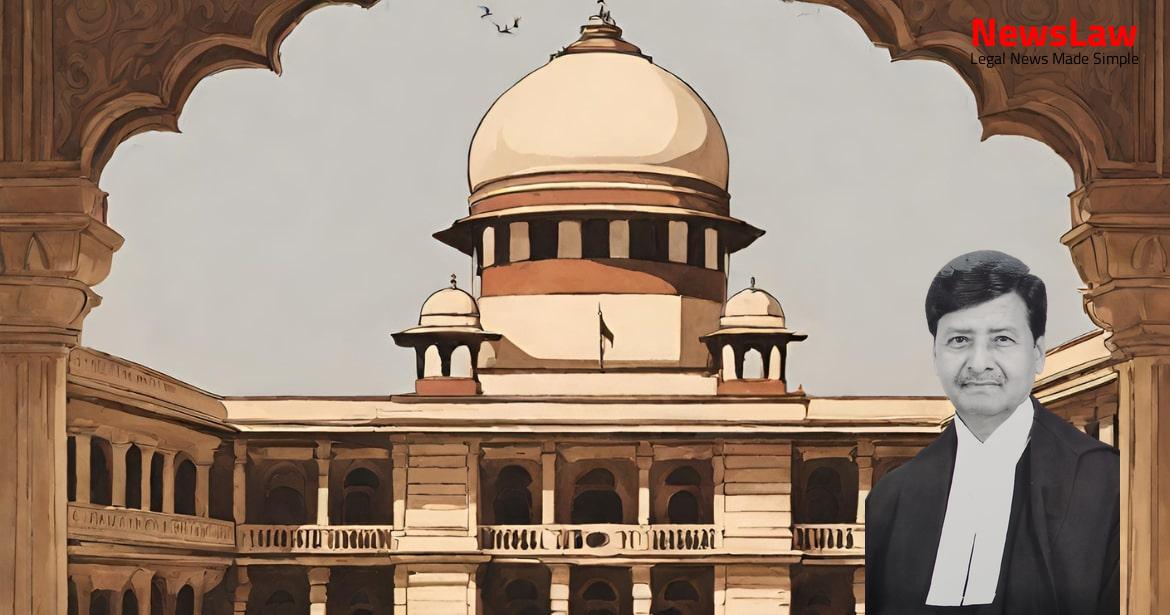In a recent legal case between the Appellant and Respondent No. 5, concerning the sale of property, the court dismissed the appeal due to significant delay in filing applications under Order IX, Rule 7 of the CPC. The courts noted the lack of reasonable cause for the delay and upheld the lower court’s decision. The Appellant’s claim of negligence on the part of their advocates was found unsubstantiated, leading to the dismissal of the appeal.
Facts
- Appellant filed multiple applications under Order IX, Rule 7 of the CPC to set aside previous court orders.
- The trial court dismissed appellant’s applications noting contradictions and lack of reasonable cause for delay.
- Appellant’s property was sold to him by Respondent No. 5 via a registered sale deed.
- After dismissal of applications, appellant invoked Article 227 in the High Court against the revisional court’s order.
- The High Court dismissed appellant’s petition under Article 227, upholding lower court orders.
- First application under Order IX, Rule 7 of the CPC was moved on 01.09.2017 but not pressed for 3 years.
- Second application was moved on 23.11.2020 without showing ‘good cause’ as required under Order IX, Rule 7 of the CPC.
- Appellant’s counsel remained the same throughout the proceedings.
- Appellant’s counsel would have known about the ex-parte order dated 06.09.2006.
- No reference to the name of the counsel who allegedly put the appellant in the dark.
- Application for recalling the ex-parte order was filed after a delay of 14 years without satisfactory reasons for the delay.
- The revisional court found no error in the trial court’s order dated 07.10.2021 and dismissed the Civil Revision filed by the appellant.
- The High Court affirmed the orders of both courts below and dismissed the petition filed by the appellant.
- The suit was filed by the respondent-plaintiffs in 2006, and the appellant-defendant appeared and filed the vakalatnama in 2006.
- In 2011, the appellant moved an application seeking permission to file written statements.
Also Read: Liability for Employee Actions in Contractual Disputes
Analysis
- An inordinate delay without a reasonable explanation may not be condoned in court proceedings.
- The conduct, behavior, and attitude of a party are crucial factors in considering condonation of delay.
- The term ‘sufficient cause’ in the context of limitation has been interpreted liberally in various judgments.
- Upon reviewing the appellant’s application for condonation of a 14-year delay, the court found no satisfactory grounds provided for the delay.
- Different approaches are warranted for cases with significant delays and cases with shorter delays.
- The principle of weighing the balance of justice for both parties should not be disregarded in the name of a liberal approach to condonation of delay.
- (iv) No presumption can be attached to deliberate causation of delay but, gross negligence on the part of the counsel or litigant is to be taken note of.
- (vii) The concept of liberal approach has to encapsulate the conception of reasonableness and it cannot be allowed a totally unfettered free play.
- (ii) The terms “sufficient cause” should be understood in their proper spirit, philosophy, and purpose regard being had to the fact that these terms are basically elastic and are to be applied in proper perspective to the obtaining fact-situation.
- (iii) Substantial justice being paramount and pivotal, the technical considerations should not be given undue and uncalled for emphasis.
- (vi) It is to be kept in mind that adherence to strict proof should not affect public justice and cause public mischief because the courts are required to be vigilant so that in the ultimate eventuate there is no real failure of justice.
- (v) Lack of bona fides imputable to a party seeking condonation of delay is a significant and relevant fact.
- There is no gainsaying the fact that the discretionary power of a court to condone delay must be exercised judiciously and it is not to be exercised in cases where there is gross negligence and/or want of due diligence on the part of the litigant.
- Thus, it is apparent that the words ‘sufficient cause’ in Section 5 of the Limitation Act can only be given a liberal construction when no negligence, nor inaction, nor want of bona fide is imputable to the litigant.
- The principles which are to be kept in mind for condonation of delay were succinctly summarized by this Court in Esha Bhattacharjee v. Managing Committee of Raghunathpur Nafar Academy & Ors., (2013) 12 SCC 649, and are reproduced as under: ‘21.1. (i) There should be a liberal, pragmatic, justice-oriented, non-pedantic approach while dealing with an application for condonation of delay, for the courts are not supposed to legalize injustice but are obliged to remove injustice.’
- The trial court, revisional court, and High Court were justified in dismissing the belated claim of the appellant.
- The appellant failed to provide a satisfactory explanation for the delay in filing the application under Order IX, Rule 7, which was only done in 2017.
- The appellant’s claim that the appointed advocate did not pursue the matter diligently and the subsequent advocate forgot to file the application lacks supporting evidence in the records.
- The appellant’s gross negligence in pursuing the matter before the trial court is evident.
Also Read: Supreme Court Upholds Rejection of Plaint Under Order VII Rule 11 of CPC: A Critical Analysis
Decision
- The appeal has been dismissed by the court.
- The High Court of Judicature at Allahabad’s order dated 19.05.2022 has not been interfered with.
- No reason found to overturn the impugned order.
Also Read: Validity of Debt and Enforcement of Section 138 NI Act
Case Title: K. B. LAL (KRISHNA BAHADUR LAL) Vs. GYANENDRA PRATAP (2024 INSC 281)
Case Number: C.A. No.-004785-004785 / 2024



